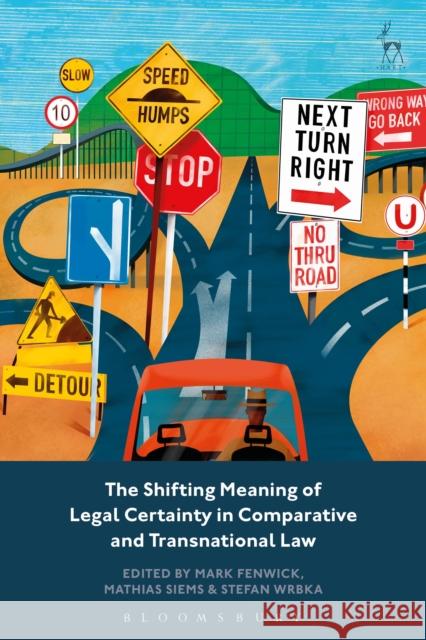The Shifting Meaning of Legal Certainty in Comparative and Transnational Law » książka
The Shifting Meaning of Legal Certainty in Comparative and Transnational Law
ISBN-13: 9781509911257 / Angielski / Twarda / 2017 / 328 str.
The Shifting Meaning of Legal Certainty in Comparative and Transnational Law
ISBN-13: 9781509911257 / Angielski / Twarda / 2017 / 328 str.
(netto: 443,13 VAT: 5%)
Najniższa cena z 30 dni: 462,44
ok. 22 dni roboczych.
Darmowa dostawa!
This edited collection brings together research from a range of substantive areas of law that share a common interest in understanding the multi-layered challenges of defining legal certainty in the context of legal and political modernity. The principle of legal certainty-the view that the law must be sufficiently certain to provide those subject to legal norms with the resources to regulate their own conduct and to provide a layer of protection against the arbitrary use of public power-has functioned as a fundamental rule of law value and as a normative ideal that has structured legal debates, both at the national and international level. In recent years, however, legal certainty has come under renewed pressure from a number of historically new and competing demands that are made of law: for example, the expectation that the law be more responsive to a social environment characterized by rapid economic and technological change; or the marked trend, across most major jurisdictions, towards increasing the degree and scope of discretion afforded to regulators in the fields of business and market regulation-the so-called 'responsive regulation'; or the challenges posed by indices, such as the World Bank's Doing Business Report and the Index of Legal Certainty, which apply metric tools to rank a country's performance with the ultimate aim to reduce the 'regulatory burden' of doing business, and to prove the virtues of their respective models. These, and other, developments raise difficult, but interesting, questions regarding the meaning, possibility and desirability of legal certainty in the context of a rapidly changing global society. This book aims to address these issues by bringing together scholars from various jurisdictions to examine changes in the shifting meaning of legal certainty.The book will be of interest both to lawyers and academics interested in understanding the transformation of core rule of law values in the context of contemporary social change, as well as political scientists and social theorists. Subject: Comparative Law, Company Law, Commercial Law, Legal Philosophy]











